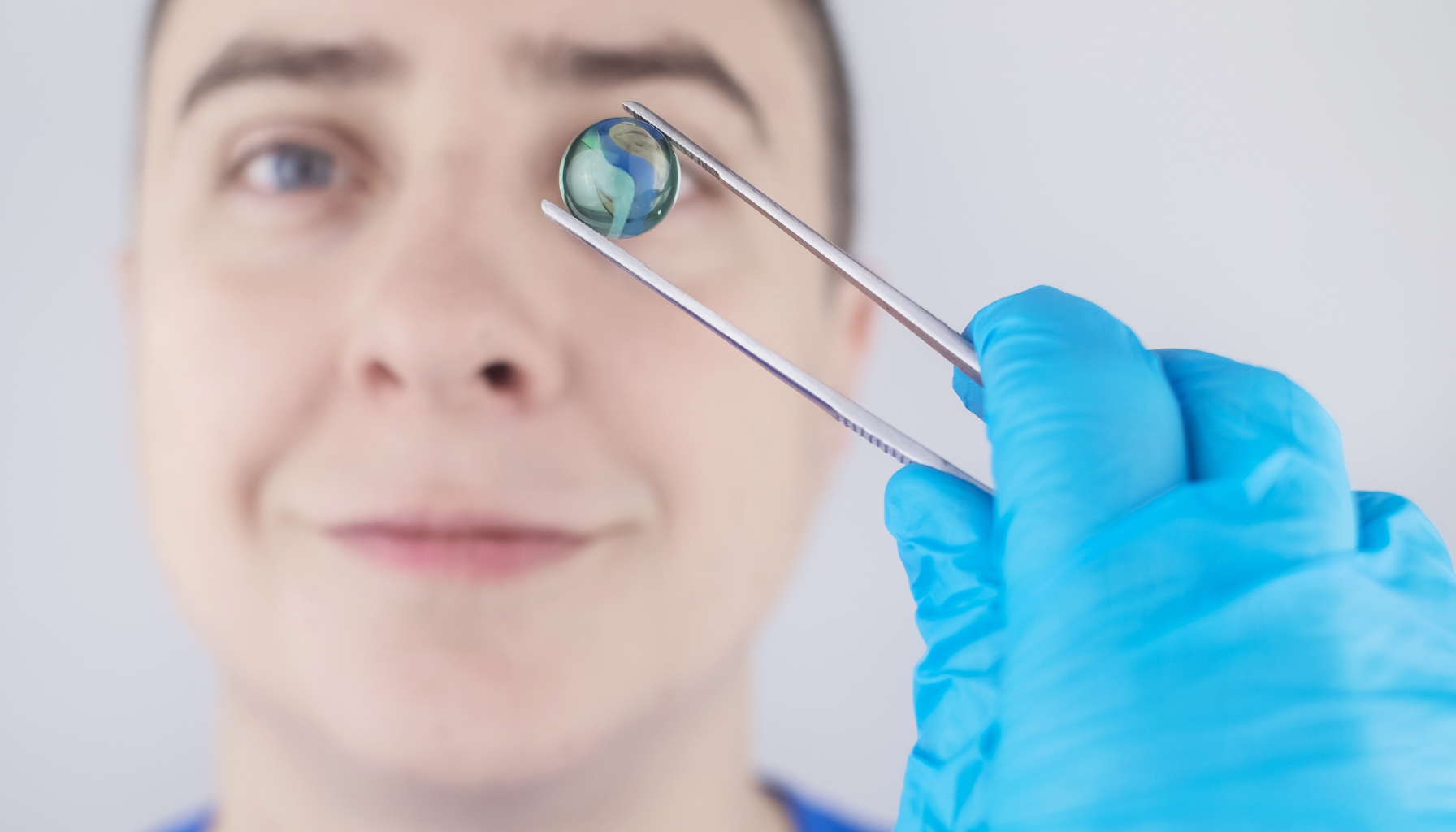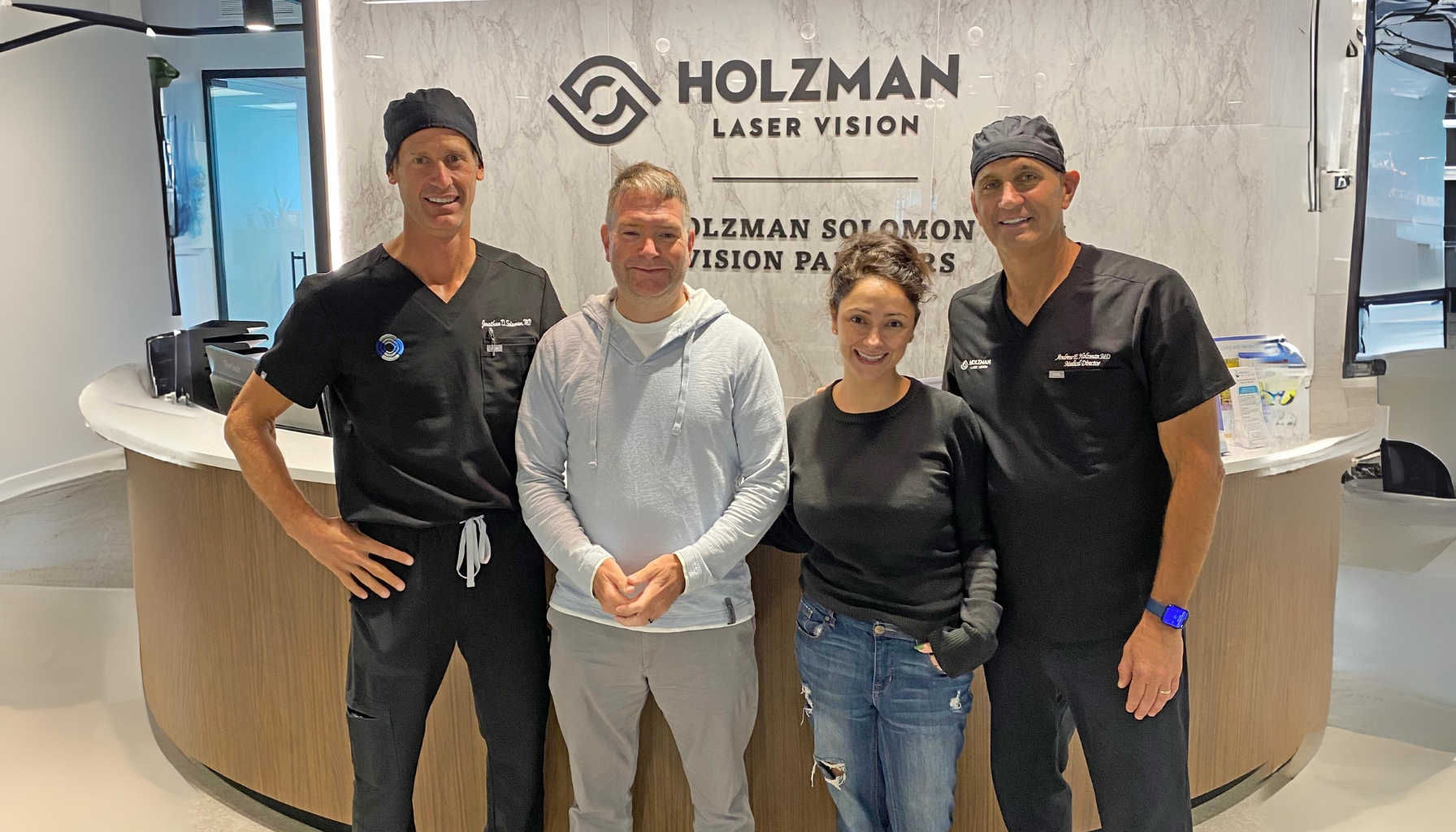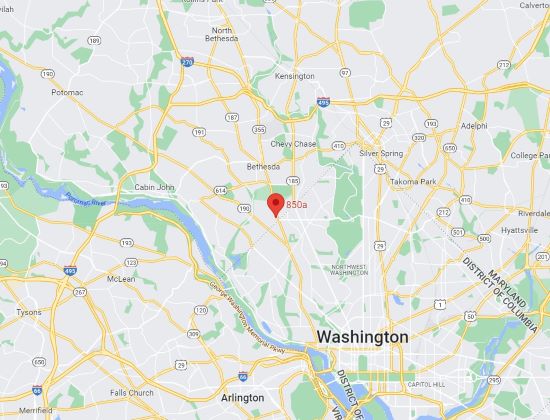Understanding Cataract Surgery
at Holzman Solomon Vision Partners in Tysons Corner:
Procedure, Benefits, and Recovery
Understanding Cataract Surgery in Tysons Corner:
Procedure, Benefits, and Recovery
Have you ever imagined experiencing the world with clearer, brighter vision? At Holzman Solomon Vision Partners in Tysons Corner, our renowned refractive cataract surgeon, Dr. Jonathan Solomon, can make this a reality for you. By removing the cloudy lens in the eye and replacing it with an artificial one, cataract surgery offers the potential for improved vision and a better quality of life. Let’s explore the journey of cataract surgery, from deciding on the necessity of the procedure to understanding the costs involved and the benefits it brings.
Key Takeaways
-
Cataract surgery in Washington DC at HSVP is a safe and well-established procedure that involves the removal of a cloudy lens and its replacement with an artificial lens.
-
Preoperative assessment, medication adjustments, lifestyle modifications, day before instructions are integral to the success of cataract surgery at our Tysons Corner practice.
- Discuss potential complications, costs, and benefits with Dr. Solomon to make an informed decision about your surgery. Costs vary based on insurance coverage but can range from $4,000-$6,000 per eye.
Deciding on Cataract Surgery: When Is It Necessary?

Cataract surgery comes into the picture when vision loss interferes with daily activities, complicates simple tasks and compromises the quality of life. In addition, conditions like double vision might require cataract surgery for improved management. The decision to undergo surgery should be made in consultation with an eye doctor, who will weigh the benefits of cataract surgery, such as improved vision loss, against the risks of cataract surgery.
In some cases, cataracts form in both eyes, prompting a sequential bilateral cataract surgery, which is a type of eye surgery. This involves performing the surgery on one eye at a time, allowing the first eye to heal before treating the second eye. The lens implant, also known as an intraocular lens (IOL), replaces the cloudy lens during the surgery, restoring clear vision.
Before deciding on cataract surgery, discussing potential risks and benefits with Dr. Solomon is beneficial. He may suggest surgery based on your specific situation to provide optimal eye care.
Pre-Surgical Assessment and Preparation
Before undergoing cataract surgery, it’s important to go through pre-surgical assessment and preparation. This includes selecting the most suitable intraocular lens (IOL) for you. Cataract surgeons will consider factors such as your personal preferences, eye measurements, and lifestyle to determine the right IOL type for your needs.
We’ll further elaborate on each of these important steps.
Choosing Your Intraocular Lens
To determine the most suitable intraocular lenses (IOL) for you, your eye surgeon will take into account factors such as personal preferences, eye measurements, and lifestyle. There are various types of IOLs available, including:
- Light-Adjustable Lens
- Monofocal lens
- Toric lens
- Multifocal lenses
- Extended depth of focus lenses
Each lens implant type offers different benefits and risks, so it’s essential to consult with your eye surgeon to decide which option is best for you.
Eye measurements, for instance, the length of the eye and the cornea’s shape, significantly influence the selection of the suitable IOL. The eye is measured prior to surgery to ascertain the correct focusing power for your intraocular lens implant (IOL). Refractive cataract surgery is typically performed as an outpatient procedure, ensuring a comfortable and convenient experience for the patient.
Keep in mind that your choice of IOL can influence the overall cost of cataract surgery. Some IOLs, such as a monofocal lens, may be more economical than others due to their limited focusing capabilities. Discussing all the treatment options with our staff will help you make an informed decision that best suits your needs and budget.
Medication and Lifestyle Adjustments
Prior to surgery, medication adjustments and specific lifestyle alterations might be needed for an untroubled surgical experience. A significant part of this includes:
- Using antibiotic eye drops to ward off infection
While antibiotic eye drops are essential in preventing infection, they may also cause side effects, such as:
- itchy eyes
- red eyes
- inflamed eyes
- potential eye infection
- as well as anti inflammatories
Following your doctor’s directives and using the prescribed eye drops can help minimize complication risks.
In addition to medication adjustments, Dr. Solomon may advise on lifestyle changes to optimize your overall health and contribute to the success of your surgery.
The Cataract Surgery Process

Despite the complexity often associated with surgery, cataract surgeries at HSVP are well-established and safe. Dr. Solomon, our skilled cataract surgeon, will guide you through the following steps:
During the Surgery
During surgery, the eye is numbed, and the pupil is dilated using dialating agents such as phenylephrine. This allows Dr. Solomon to safely and effectively remove the clouded lens. The natural lens is removed using technology. In this procedure, a needle-thin probe is inserted into the natural lens where the cataract has developed and emulsified.
The procedure requires local anesthesia is used to ensure the patient’s comfort during the surgery.
Once the cataract is removed, it is replaced with a clear artificial lens, called an intraocular lens (IOL). The IOL is implanted into the empty lens capsule, restoring functional vision after the removal of the clouded natural lens.
Immediate Post-Operative Care

Immediate post-operative care following refractive cataract surgery is key to a successful recovery. This includes:
- Taking prescribed medications to avert infection and mitigate inflammation
- Wearing glasses
Patients are advised to wear glasses or an eye patch or protective shield for a minimum of one week following surgery. This helps safeguard the eye during the recuperation period, allowing the eye to heal properly. It’s also essential to follow any sleeping position recommendations provided by your doctor, such as lying on your back and using pillows to maintain your head and body in position to prevent shifting while sleeping.
In addition to using eye drops and protective gear, patients should adhere to any lifestyle changes recommended by their doctor, such as discontinuing smoking, managing underlying medical conditions like diabetic retinopathy, or temporarily avoiding the use of contact lenses. These measures will help ensure a smooth recovery and optimal results from the cataract surgery.
Postoperative Recovery and Care at Holzman Solomon Vision Partners

Postoperative recovery and care should be the focus after laser cataract surgery. This involves attending follow-up visits, monitoring your vision, and addressing any potential complications.
We’ll elaborate on the details of each of these significant aspects.
Follow-Up Visits and Vision Monitoring
Follow-up visits and vision monitoring are essential to guarantee successful healing and vision enhancement after surgery. It is usually recommended to have a postoperative visit within 1-2 weeks after surgery, with annual follow-up visits also suggested.
During follow-up visits, your HSVP team will:
- Evaluate your eye for wound leaks
- Examine the operated eye to determine the visual outcome
- Review the healing process and overall eye health
- Verify the artificial lens for proper positioning and stability
- Assess the need for any additional treatment or adjustments.
It’s vital to monitor your vision after cataract surgery, as this can help ensure proper recovery, evaluate the success of the surgery, and address any concerns or issues that may arise. If you notice any alterations in your vision, such as dry eye syndrome, blurred vision, or difficulties associated with other eye conditions like macular degeneration or glaucoma, inform Dr. Solomon right away.
Managing Complications
Even though complications post laser cataract surgery are rare, being prepared to manage them if they occur is important. Potential complications may include:
- Infection
- Inflammation
- Retinal detachment
- New lens fragments
- Fluid buildup in the retina
- Dislocation of the implanted lens
- Glaucoma
- Cystoid macular edema
- Light sensitivity
- Photopsia
If complications are noticed following laser cataract surgery, patients should:
- Contact Dr. Solomon or our eye care team promptly
- Follow any specific instructions provided
- Avoid strenuous activities, heavy lifting, and rigorous exercise
- Not drive until after the first day following surgery
- Take any prescribed medications as directed
- Keep the eye clean and avoid touching or rubbing it
Health professionals, particularly a qualified ophthalmologist such as Dr. Solomon, play an essential role in managing complications arising from laser cataract surgery. They help:
- Prevent infection
- Control inflammation
- Alleviate ocular pain
- Monitor and manage complications
- Educate the patient on the best course of action.
Complications and Risk Factors Associated With Cataract Surgery
Despite the general safety of cataract surgery, awareness of potential complications and risk factors is important. Some complications that may arise after surgery include infection, bleeding, and vision loss. These complications are generally low but can be more likely in cataract patients with other eye diseases or medical conditions.
One potential complication is the patient may develop cataracts weeks, months, or even years following surgery. These are known as secondary cataracts, or posterior capsule opacification. This condition occurs when the posterior capsule, a cloudy membrane, becomes the source of the problem. Treatment for posterior capsular opacification involves a laser procedure called posterior capsulotomy.
Being aware of the potential risks associated with cataract surgery is important for patients to make an informed decision and manage any complications that may arise. Some potential risks of surgery include:
- Infection
- Bleeding
- Swelling
- Retinal detachment
- Glaucoma
- Secondary cataract
- Dislocated intraocular lens implants
Dr. Solomon will discuss these risks with you, ensuring you have a comprehensive understanding and receive the best possible care.
The Costs Involved in Cataract Surgery
The costs of cataract surgery can fluctuate based on several factors like insurance coverage, the chosen intraocular lenses, and any additional required tests or treatments. The average cost of cataract surgery without insurance in the US ranges from approximately $1,600 to approximately $2,866 per eye.
At our Holzman Solomon Vision Partners, we offer a comprehensive cataract surgery package for a flat fee of $11,000 for both eyes, performed in our state-of-the-art surgical center. This all-inclusive price covers the cost of the consultation, pre-operative testing, premium intraocular lenses, surgeon fees, anesthesiologist fees, pre-operative clearance, pre and post-operative medications, facility fees, and any potential touch-ups after the surgery. Please note that we do not accept Medicare or insurance. Additionally, patients receive a lifetime guarantee, providing peace of mind and ensuring exceptional care throughout their cataract surgery journey.
Enhancing Your Life with Laser Cataract Surgery

Refractive cataract surgery can greatly improve your life by enhancing your vision, making colors seem brighter, and facilitating daily activities with ease. The success rate of laser cataract surgery in improving vision is approximately 97%. With clearer vision, you can enjoy a better quality of life and heightened awareness of your surroundings.
After surgery, many patients report that colors appear more vibrant and whites appear whiter. This vision correction in color perception can make normal activities more enjoyable and enriching. The benefits of cataract surgery extend beyond vision correction, as the procedure can also have exceptional outcomes leading to a positive impact on your overall well-being and confidence.
Don’t let cataracts cloud your vision any longer. Take the first step towards a brighter, clearer future with Dr. Jonathan Solomon at Holzman Solomon Vision Partners. Our team is dedicated to providing personalized patient care and ensuring you experience the world anew.
Summary
In conclusion, cataract surgery in Washington DC at Holzman Solomon Vision Partners with Dr. Jonathan Solomon is a life-changing procedure that significantly enhances your vision and overall quality of life. From the initial decision-making process to understanding costs and managing potential complications, our practice is committed to providing you with valuable information and personalized care. With clearer vision and brighter colors, you can embark on a journey to a better quality of life.
Frequently Asked Questions
What factors determine the necessity of cataract surgery?
Cataract surgery is considered when vision loss affects daily activities or when other eye conditions require treatment. Dr. Solomon will guide you through the decision-making process.
How long does the recovery period last after cataract surgery?
Recovery from cataract surgery typically lasts 4 – 12 weeks. Our team will provide ongoing support and monitoring to ensure a successful recovery.
What are some potential complications after cataract surgery?
Cataract surgery may lead to complications such as infection, inflammation, retinal detachment, fluid buildup in the retina, glaucoma, and cystoid macular edema. Other potential issues include lens fragments, dislocation of the artificial lens, light sensitivity, photopsia, and macular edema. Our team, led by Dr. Solomon, is prepared to address and manage any complications that may arise.
What factors affect the cost of cataract surgery?
Costs are influenced by insurance coverage, intraocular lens type, and additional tests or treatments. Dr. Solomon will discuss the costs and help you make an informed decision.
How can cataract surgery enhance my life?
Cataract surgery with Dr. Jonathan Solomon enhances your vision, making colors appear brighter and facilitating daily activities. The procedure goes beyond improved vision, positively impacting your overall well-being and confidence.
Does insurance cover cataract surgery?
Typically, insurance coverage for cataract surgery includes expenses related to the surgical procedure, such as the surgeon’s fees, facility fees, and the cost of an intraocular lens (IOL). However, there may be out-of-pocket costs, such as deductibles, co-payments, or co-insurance, depending on your insurance plan.



